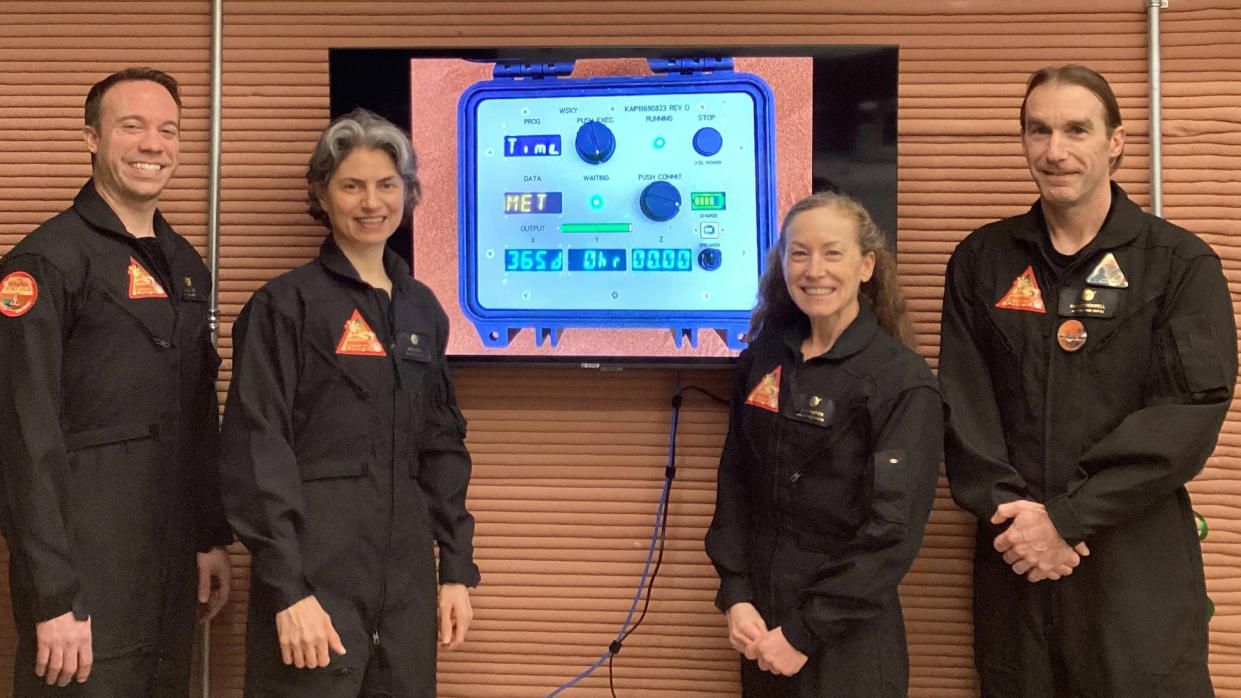Watch NASA's 1st year-long mock Mars mission wrap up today

NASA's first year-long mock Mars mission will come to an end today (July 6), and you can watch the action live.
That mission, the first in the CHAPEA ("Crew Health and Performance Exploration Analog") series, began on June 25, 2003, when four volunteers were sealed inside a simulated Mars habitat at NASA's Johnson Space Center (JSC) in Houston. The quartet will exit the habitat today, after a staggering 378 days.
You can watch their return to regular Earth life here at Space.com, courtesy of NASA, in a livestream that begins at 5 p.m. EDT (2100 GMT).

RELATED STORIES:
— NASA seeks applications for the CHAPEA 2 analog Mars mission
— 'Analog astronauts' assemble in Biosphere 2 bubble to talk simulated space missions
— What will astronauts on deep space missions eat? 'Neurogastronomy' may have the answer.
The four volunteers for this first CHAPEA mission were Kelly Haston, Anca Selariu, Ross Brockwell and Nathan Jones. Their home for the past year-plus has been Mars Dune Alpha, a 1,700-square-foot (158 square meters) 3D-printed habitat designed to feel like an isolated Red Planet outpost.
The quartet's experiences in Mars Dune Alpha will inform NASA's planning for real-life crewed missions to the Red Planet, which the agency aims to start launching in the late 2030s or early 2040s.
"For more than a year, the crew simulated Mars mission operations, including 'Marswalks,' grew and harvested several vegetables to supplement their shelf-stable food, maintained their equipment and habitat and operated under additional stressors a Mars crew will experience, including communication delays with Earth, resource limitations and isolation," NASA officials wrote in a CHAPEA mission description.
Related: Tour the mock Mars habitat where 4 NASA analog astronauts will spend the next year (video)
Today's event will feature a short "welcome home" ceremony for Haston, Selariu, Brockwell and Jones. The quartet will participate in the webcast activities, as will the following people:
Steve Koerner, deputy director, JSC
Kjell Lindgren, NASA astronaut and deputy director, Flight Operations
Grace Douglas, principal investigator, CHAPEA
Judy Hayes, chief science officer, Human Health and Performance Directorate
Julie Kramer White, director of engineering

